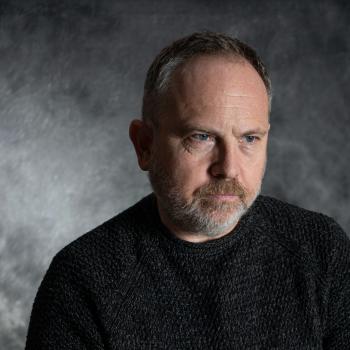 Perusing the pages of Patheos I came across an interesting article in a place I don’t often visit: the Pagan Channel. Its subject was “purpose and will” and in the post John Beckett opined that, believe it or not, we all have a purpose in life. He said this feeling came not from his Pagan religion but from a core intuition than “whispers there’s more to life than the apparent world”. In his words:
Perusing the pages of Patheos I came across an interesting article in a place I don’t often visit: the Pagan Channel. Its subject was “purpose and will” and in the post John Beckett opined that, believe it or not, we all have a purpose in life. He said this feeling came not from his Pagan religion but from a core intuition than “whispers there’s more to life than the apparent world”. In his words:
You’re here for a reason. Maybe you have to discover that reason or maybe you have to create it, but there is something in this life you need to accomplish, or learn, or facilitate. You can do this great work not because the gods will make it easy for you but because your soul screams you must do it, no matter what.
It got me thinking about an fascinating little book titled The Call by the spiritual philosopher and “practical mystic” David Spangler. As the title implies, it’s about finding your life’s calling, your reason for existence, which might be the single most important task we face in life.
Calling is an interesting word, as it can literally mean to cry or shout out, yet it also alludes to our vocation. Ideally, we want the two meanings of calling to come crashing together—we want our vocation to loudly announce itself to us, so that we’re absolutely certain we’re on the right life path. But it’s usually not that easy.
So if we’re not sure, how do we find something as essential as our calling?
Spangler has some ideas and they’re not all his own. He claims to have tapped into an ancient source of wisdom that he refers to as “spirit guides” that help him find the answers to our very mortal questions. And Spangler uses this wisdom to advise people who come to him for readings.
Inevitably, Spangler hears variations of the same question over and over: What is my purpose in life? And his primary spirit guide, who goes by the name John, finds this question puzzling because he believes the answer is so obvious. Each person’s calling is to simply to be himself or herself. In John’s words,
Take a look at your life, because in its texture and content, you will discover why you are here.
Spangler suggests that we all possess a gift or talent that we are attracted to and enjoy doing, and that this gift ultimately connects us to others. This is our calling. It might be a talent for music or painting, or teaching a specific craft or skill-set—a gift that “not only uplifts us, but finds its fullness in being shared.”
It could also be a more subtle gift, like an ability to relate to children or an affinity for caring for animals or the environment, or even “being a great listener, one whose silence and empathy become a call in itself to draw out from others the toxins of despair or the sweet wines of enthusiasm and dreams.”
In the book The Power of Purpose, Richard J. Leider echoes Spangler’s advice telling us that purpose often finds expression through “family, community relationship, work and spiritual activities.” But Leider also takes a wider view suggesting that the pursuit of our calling is a continuing effort, a “process we live every day.” He advises us that:
(Purpose) requires a steady commitment to face each new workday with the question: Why do I get up in the morning?” The wisdom to ask and the courage to answer this simple question is the essence of working on purpose.
But perhaps the concept of purpose is best and most simply voiced by John Templeton. The businessman turned spiritual philosopher points out that “people who devote their lives to noble purposes automatically become happier individuals.” In his words:
Life’s most precious gift is to live for truth and goodness and for the benefit of others.
It is something that Spangler, Leider and Templeton all agree on–that our calling is rooted in helping others, for it is here that we find the real reason for our existence and the true meaning of life.















